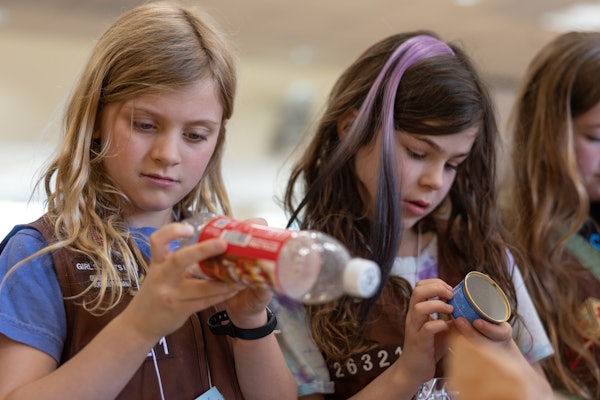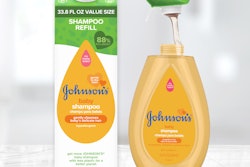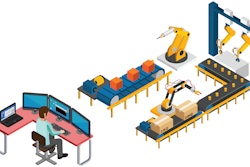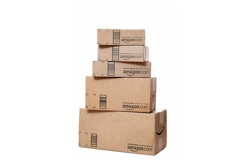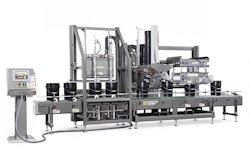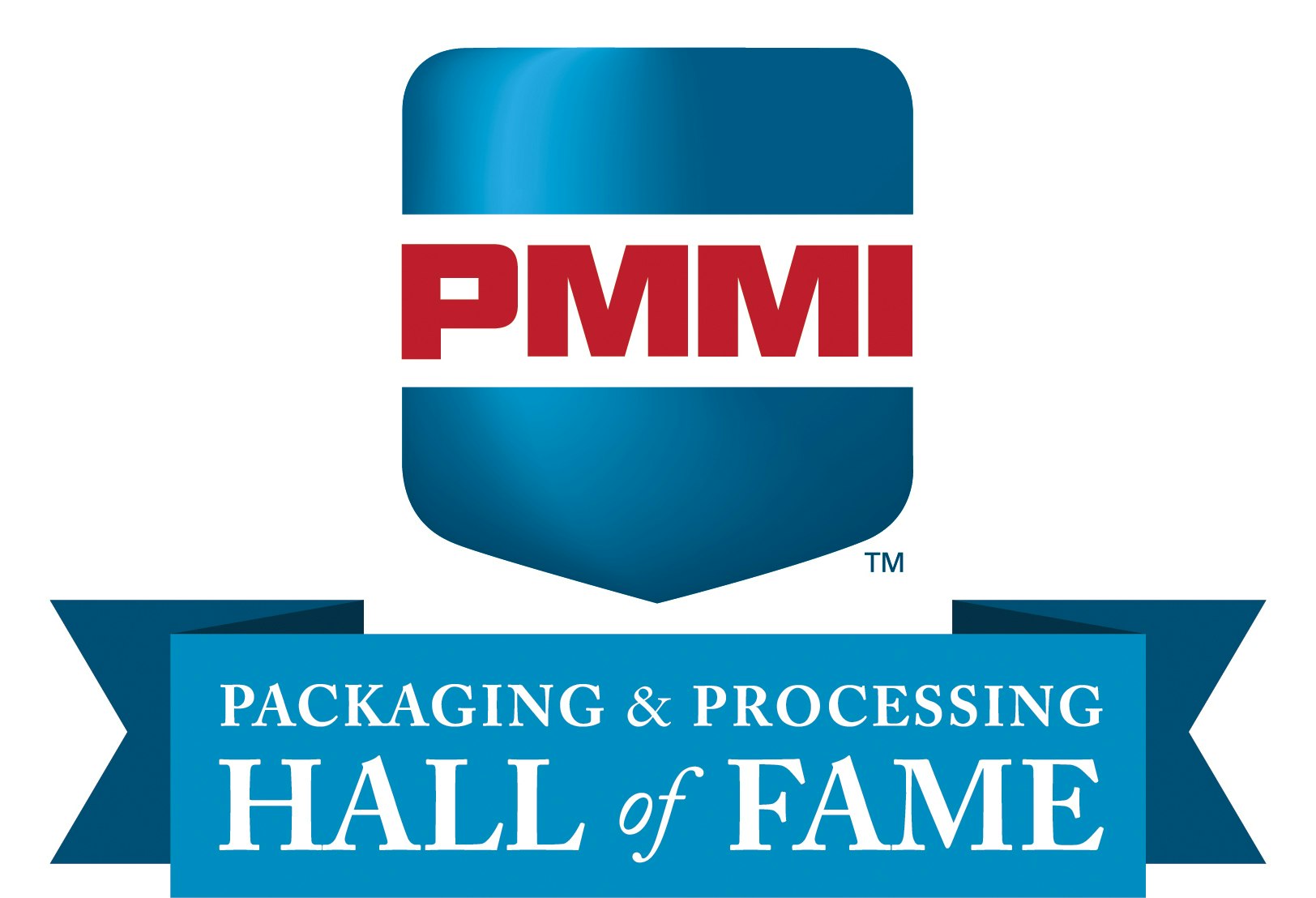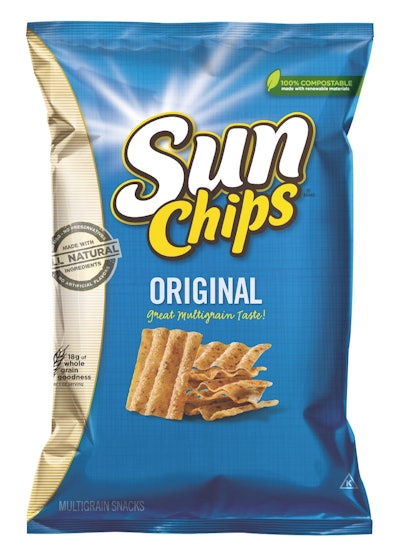
Someday business textbooks will contain case studies about Frito-Lay, Inc.'s decision to market Sun Chips in a PLA (polylactic acid) bag. As a teaching method, case studies are effective because they present a common business situation to which a subject company applies an uncommon approach. The analysis of the company's approach—good, bad, or mixed—constitutes the heart of a case study. That analysis, in turn, relies upon data, narratives, and scenes. So in anticipation of the Frito-Lay case studies to come, let's consider some of the issues in the form of questions.
On the front of the bag, at the top and taking up more than a third of the space, is, "WORLD'S FIRST 100% COMPOSTABLE CHIP PACKAGE." Except for the Nutrition Facts panel, the back of the bag is devoted to declarations about the bag's compostability. From all sides, from all angles, the packaging emphasizes one thing: compostability.
Betting all its chips
In poker, it's called, being all in. That's how heavily Frito-Lay has wagered on compostable packaging.
But it's the unconditional nature of the phrasing—essentially, that the bag is beneficial, even if decomposition takes longer than the cited weeks—that's likely to be one issue addressed in a case study analysis. For Frito-Lay did not hedge its bet by limiting its promotion to the packaging's renewable sourcing (plants). Will future case studies make us privy to the discussions within the corporation that led to the decision to go all out for compostability? What considerations were brought to bear and how were they weighted? Maybe those envisioned case studies will present the data that factored into Frito-Lay's decision, for example, charts and statistics on growth projections on composting; or, to the contrary, show that no such data was utilized.
Depending on how disclosing a company is, the writer of a case study can provide insights into the conflicting personalities and positions that played out in the corporation's decisions. Who (by job titles) ultimately carried sway, and what parts of their arguments were most persuasive? Perhaps as insightful, who were the dissenters and what were their justifications?
Is the brand locked in?
Contingency planning is prudent, posing "what if's" and devising a plan B and/or exit strategies, as deemed appropriate. If, for whatever reason, compostable packaging becomes a liability, Sun Chips would be in quite the untenable position. How can Frito-Lay ever divorce itself from composting, having anointed it as unconditionally good for the planet? How can Sun Chips® ever un-become the brand in the compostable bag, when the brand virtually has been branded with that designation?
Composting requires the temperatures, moisture levels, and microbial loads attainable at commercial facilities; however, for household operation, composing bins can be built or bought. Compostability is not synonymous with biodegradability, a distinction that FTC (Federal Trade Commission) regulations make clear.
Furthermore, in the U.S, corn is the principal source for PLA. That fact has garnered criticisms/concerns about: genetically-engineered strains; nitrogen fertilizer run-offs into waterways (that cause aquatic life dead-zones); competition with ethanol; and the advisability of using the crop for plastic in the face of world hunger. So let those forthcoming case studies instruct how (or whether) Frito-Lay evaluated the aforementioned and to what degree it planned for whatever negativity might befall composting.
A different issue is how the other brands under the Frito-Lay banner might be locked in. The company has a stable of snack chips brands, each a category leader, and each imposing the same functional requirements on a bag regarding protection of freshness and quality. That being so, a bag that's suitable for Sun Chips should be suitable for Doritos, Tostitos, and the other flagships. According to the Sun Chips website, the compostable bag is a good thing, "BECAUSE THE EARTH LIKES TO EAT HEALTHIER TOO." By logic, does this not obligate the other brands to follow suit?
A request to you future case study authors: give coverage to whatever back-and-forth might have gone on among the brand managers relative to their conversion to the compostable bag. If there was a schedule, how was it composed? If none, and the strategy was to keep the bag exclusive to Sun Chips, how was that defended? Additionally, would a left-out brand be vulnerable to a competitor (including a private-label) that optioned for a compostable bag?
Are the expectations made on the consumer unreasonable?
Composting requires a lot when done at-home. The bin has to be built or bought. The right mix of materials has to be fed in. The pile has to be attended by way of turning it and watering it. Whew! What percent of consumers is willing to do all that? While time will tell, we don't have to wait for the case studies to make a particular, overriding observation. And that is that such requirements run counter to one of the main functions of packaging, and by extension, packaged goods: to provide convenience, notably in terms of savings in cost, time, and effort.
As mentioned earlier, Frito-Lay's position is that a compostable bag is net-beneficial, regardless of whether it's ever composted; however, is that categorically true? It's a question worthy of being posed by a case study. Given that the infrastructure for commercial composting is modest (to state it charitably), how much is saved, environmentally, by long drives to remote facilities? Also subject to debate and analysis is the cradle-to-cradle effect, the carbon footprint, if you will, from all inputs—from raising the plant crop to ultimate composting.
Without reliable metrics, one doesn't know for sure whether the compostable bag is even worth the consumer's tolerance of its noisiness, a characteristic explained on the back by the statement: This Bag Is LOUDER BECAUSE IT IS COMPOSTABLE.
Frito-Lay deserves credit
The company made a bold move in assigning such a prominent role to the packaging. It's an unequivocal acknowledgement that packaging is a strategic marketing tool. In that regard, packaging professionals should hope that results pan out well for Frito-Lay. Although the jury is still out on that, the interim bears monitoring, inside and outside that industry. There will be lessons to be learned—dos and don'ts. And when those case studies finally come out, I, for one, plan to open a bag of tasty Frito-Lay snacks and settle in for some interesting reading.
Sterling Anthony is a consultant, specializing in the strategic use of marketing, logistics, and packaging. His contact information is: 100 Renaissance Center-176, Detroit, MI 48243; 313-531-1875 office; 313-531-1972 fax; [email protected].
On the front of the bag, at the top and taking up more than a third of the space, is, "WORLD'S FIRST 100% COMPOSTABLE CHIP PACKAGE." Except for the Nutrition Facts panel, the back of the bag is devoted to declarations about the bag's compostability. From all sides, from all angles, the packaging emphasizes one thing: compostability.
Betting all its chips
In poker, it's called, being all in. That's how heavily Frito-Lay has wagered on compostable packaging.
But it's the unconditional nature of the phrasing—essentially, that the bag is beneficial, even if decomposition takes longer than the cited weeks—that's likely to be one issue addressed in a case study analysis. For Frito-Lay did not hedge its bet by limiting its promotion to the packaging's renewable sourcing (plants). Will future case studies make us privy to the discussions within the corporation that led to the decision to go all out for compostability? What considerations were brought to bear and how were they weighted? Maybe those envisioned case studies will present the data that factored into Frito-Lay's decision, for example, charts and statistics on growth projections on composting; or, to the contrary, show that no such data was utilized.
Depending on how disclosing a company is, the writer of a case study can provide insights into the conflicting personalities and positions that played out in the corporation's decisions. Who (by job titles) ultimately carried sway, and what parts of their arguments were most persuasive? Perhaps as insightful, who were the dissenters and what were their justifications?
Is the brand locked in?
Contingency planning is prudent, posing "what if's" and devising a plan B and/or exit strategies, as deemed appropriate. If, for whatever reason, compostable packaging becomes a liability, Sun Chips would be in quite the untenable position. How can Frito-Lay ever divorce itself from composting, having anointed it as unconditionally good for the planet? How can Sun Chips® ever un-become the brand in the compostable bag, when the brand virtually has been branded with that designation?
Composting requires the temperatures, moisture levels, and microbial loads attainable at commercial facilities; however, for household operation, composing bins can be built or bought. Compostability is not synonymous with biodegradability, a distinction that FTC (Federal Trade Commission) regulations make clear.
Furthermore, in the U.S, corn is the principal source for PLA. That fact has garnered criticisms/concerns about: genetically-engineered strains; nitrogen fertilizer run-offs into waterways (that cause aquatic life dead-zones); competition with ethanol; and the advisability of using the crop for plastic in the face of world hunger. So let those forthcoming case studies instruct how (or whether) Frito-Lay evaluated the aforementioned and to what degree it planned for whatever negativity might befall composting.
A different issue is how the other brands under the Frito-Lay banner might be locked in. The company has a stable of snack chips brands, each a category leader, and each imposing the same functional requirements on a bag regarding protection of freshness and quality. That being so, a bag that's suitable for Sun Chips should be suitable for Doritos, Tostitos, and the other flagships. According to the Sun Chips website, the compostable bag is a good thing, "BECAUSE THE EARTH LIKES TO EAT HEALTHIER TOO." By logic, does this not obligate the other brands to follow suit?
A request to you future case study authors: give coverage to whatever back-and-forth might have gone on among the brand managers relative to their conversion to the compostable bag. If there was a schedule, how was it composed? If none, and the strategy was to keep the bag exclusive to Sun Chips, how was that defended? Additionally, would a left-out brand be vulnerable to a competitor (including a private-label) that optioned for a compostable bag?
Are the expectations made on the consumer unreasonable?
Composting requires a lot when done at-home. The bin has to be built or bought. The right mix of materials has to be fed in. The pile has to be attended by way of turning it and watering it. Whew! What percent of consumers is willing to do all that? While time will tell, we don't have to wait for the case studies to make a particular, overriding observation. And that is that such requirements run counter to one of the main functions of packaging, and by extension, packaged goods: to provide convenience, notably in terms of savings in cost, time, and effort.
As mentioned earlier, Frito-Lay's position is that a compostable bag is net-beneficial, regardless of whether it's ever composted; however, is that categorically true? It's a question worthy of being posed by a case study. Given that the infrastructure for commercial composting is modest (to state it charitably), how much is saved, environmentally, by long drives to remote facilities? Also subject to debate and analysis is the cradle-to-cradle effect, the carbon footprint, if you will, from all inputs—from raising the plant crop to ultimate composting.
Without reliable metrics, one doesn't know for sure whether the compostable bag is even worth the consumer's tolerance of its noisiness, a characteristic explained on the back by the statement: This Bag Is LOUDER BECAUSE IT IS COMPOSTABLE.
Frito-Lay deserves credit
The company made a bold move in assigning such a prominent role to the packaging. It's an unequivocal acknowledgement that packaging is a strategic marketing tool. In that regard, packaging professionals should hope that results pan out well for Frito-Lay. Although the jury is still out on that, the interim bears monitoring, inside and outside that industry. There will be lessons to be learned—dos and don'ts. And when those case studies finally come out, I, for one, plan to open a bag of tasty Frito-Lay snacks and settle in for some interesting reading.
Sterling Anthony is a consultant, specializing in the strategic use of marketing, logistics, and packaging. His contact information is: 100 Renaissance Center-176, Detroit, MI 48243; 313-531-1875 office; 313-531-1972 fax; [email protected].
Companies in this article




